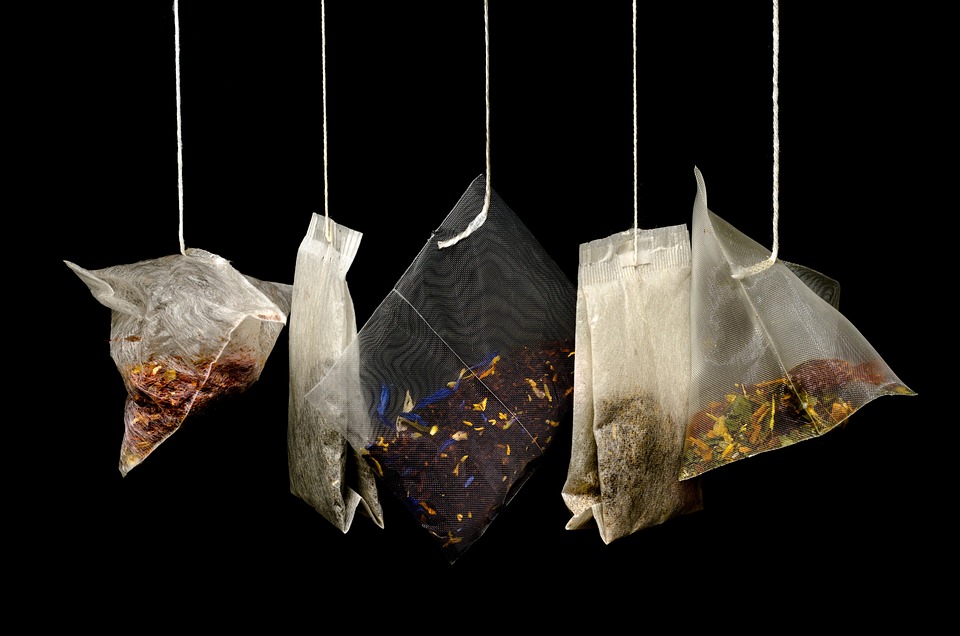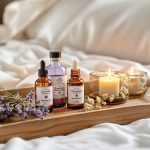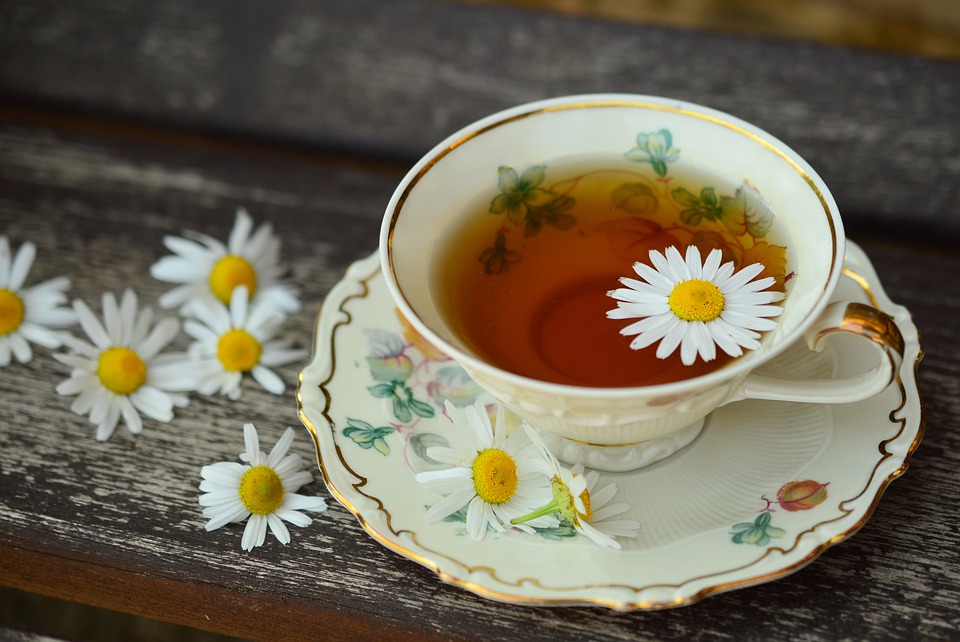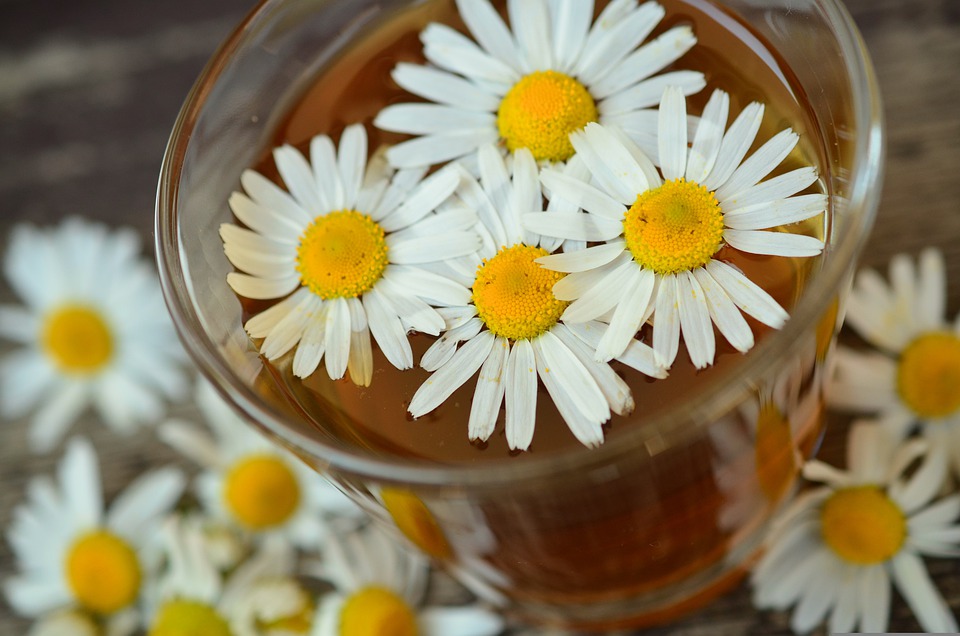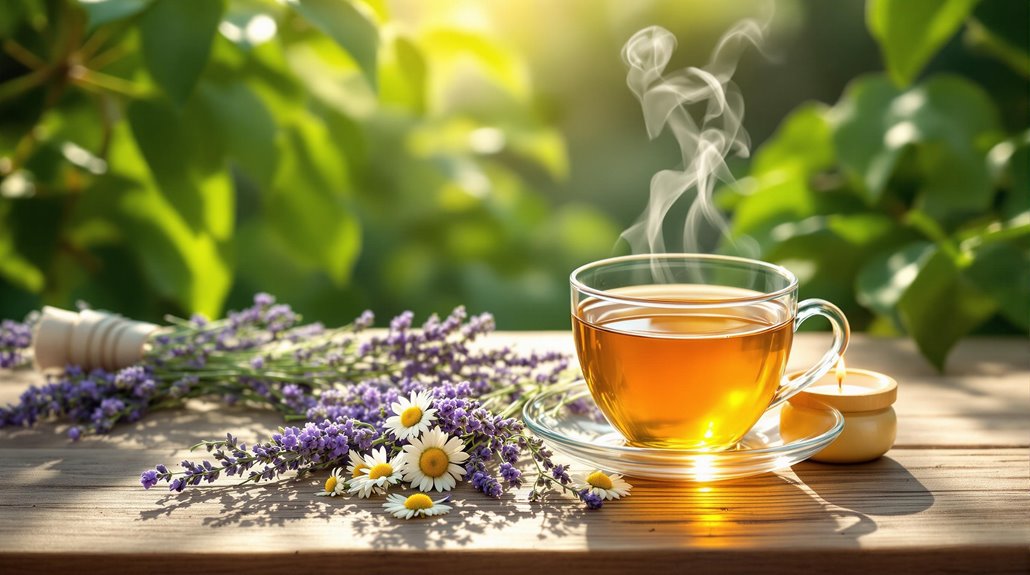
You can ease anxiety naturally by making simple lifestyle changes. Focus on your diet by adding omega-3-rich foods like walnuts and fatty fish and consuming complex carbohydrates from whole grains. Practice mindfulness with breathing techniques and meditation to stay grounded. Herbal remedies such as chamomile tea or supplements like valerian root can soothe nerves. Incorporate physical activities like yoga and walking to release endorphins. Try aromatherapy with essential oils like lavender for a calming effect. Small adjustments, like limiting alcohol, can make a significant difference in managing anxiety, offering more ways to improve your mental well-being.
Dietary Changes for Anxiety
Addressing anxiety through dietary changes can be both effective and empowering. By focusing on nutrient timing and cooking methods, you can optimize the intake of anxiety-relieving foods. Incorporating omega-3 fatty acids like those found in fatty fish, walnuts, and flaxseeds can greatly support brain health and minimize inflammation. Studies indicate a correlation between dietary modifications and the alleviation of anxiety symptoms. Timing your meals to include these essential nutrients throughout the day guarantees they’re readily available for your body to use when needed, sustaining a balanced mood. Ensuring a diet rich in complex carbohydrates, such as whole grains, aids in keeping blood sugar levels stable, which can help manage mood swings associated with anxiety.
Pay attention to magnesium and vitamin support as well. Leafy greens, nuts, and seeds are excellent sources of magnesium, which is vital for regulating neurotransmitters linked to anxiety.
Cook these ingredients by steaming or light sautéing to preserve their nutrient integrity. Complementing your diet with foods high in vitamins B and D, such as whole grains and fortified dairy products, can further strengthen your nervous system’s health, helping to ease anxiety.
Mindfulness and Meditation
While nourishing your body with the right nutrients aids in managing anxiety, aligning your mind through mindfulness and meditation enhances overall relief. Imagine breaking free from anxiety’s grip by focusing on the present moment, something mindfulness allows you to do.
By anchoring yourself with mindful breathing techniques, like square or triangle breathing, you reduce stress and amplify relaxation. Regular practice can enhance emotional resilience and promote overall mental and physical health.
Embracing mindfulness, you’re less reactive to anxiety-inducing thoughts. Witness your worries without letting them take over. This sense of liberation comes from grounding exercises that engage your five senses—helping you claw back control when anxiety strikes.
You’ll find emotional regulation improves, giving you the power to pivot away from stress. Mindfulness practices also increase gray matter in the brain, enhancing learning, memory, emotional control, and anxiety management.
Feeling self-aware? That’s mindfulness enhancing your understanding of your emotions, enabling you to manage them better. It has remarkable, long-term benefits—comparable even to medication.
Imagine improving brain function and fortifying your emotional control as you make mindfulness a habit.
Research backs this up. Clinical trials and neurological studies reveal that mindfulness increases gray matter in your hippocampus and reduces anxiety.
Best of all, mindfulness can be practiced anywhere, offering a versatile tool for liberation from anxiety’s clutches.
Herbal Remedies
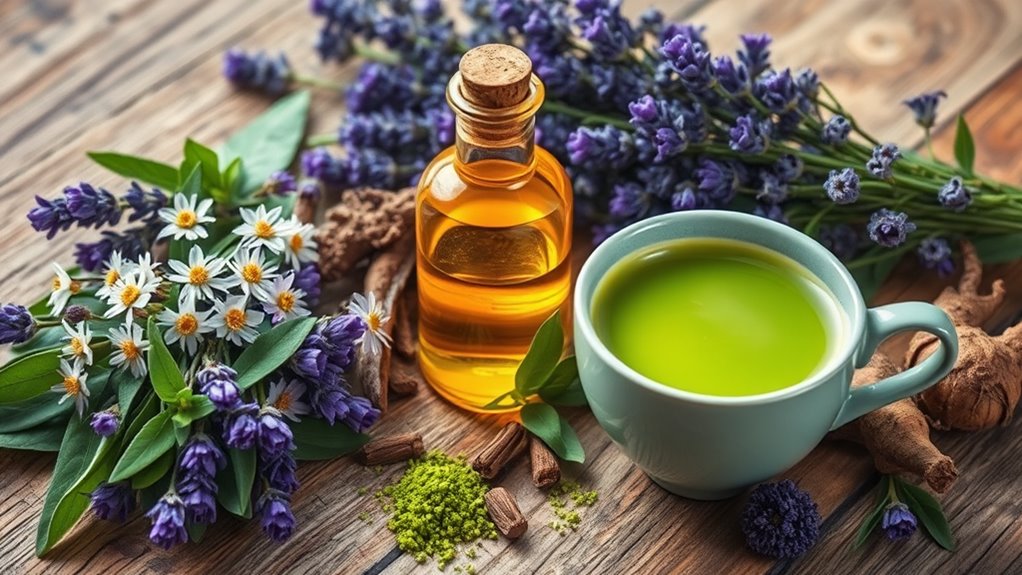
Herbal remedies offer a natural approach to alleviating anxiety, providing an alternative to pharmaceuticals for those seeking relief. Imagine harnessing the power of nature—chamomile, valerian root, lemon balm, and ashwagandha—as they blend into potent herbal combinations. Herbal teas, such as Chamomile Tea, act as a natural sleep aid and provide calming properties that can effectively alleviate stress and anxiety. These remedies can gently calm your mind, free from the chains of anxiety. Dosage guidelines are crucial; for instance, valerian root’s effective doses range from 100–1,300 mg, offering you flexibility based on your needs. Hops, with its calming properties, is another herb to take into account, with 200 mg daily helping to soothe anxiety’s grip over time. It’s notable that herbs like these offer a natural approach to managing mild to moderate anxiety symptoms while minimizing potential side effects associated with conventional medications. Your journey to anxiety relief can also include other herbal solutions like lavender and passionflower, which promise to lighten your mental load, though it’s wise to await more research. Rhodiola rosea, effectively dosed at 400 mg, can cut through anxiety and depression alike. While embracing these naturals, consulting a healthcare professional guarantees your safety, especially if you’re already on medication. Safety lies in awareness, as herbs can interact with prescription drugs and heighten sedative effects. With this knowledge, you’re empowered to carefully and wisely use nature to carve your path toward freedom from anxiety.
Aromatherapy Techniques
Moving from herbal solutions to another natural anxiety aid, you can explore the world of aromatherapy techniques. Imagine the freedom that comes with soothing your mind using essential oils. Lavender, jasmine, bergamot, chamomile, and ylang-ylang are powerful allies in this journey. Interestingly, like oil pulling, these practices create a sterile environment to cleanse your mental space too.
When inhaled, these oils can influence your limbic system, leading to reduced cortisol levels and lower blood pressure. Essential oils may complement overall treatment plans for anxiety, offering an additional tool for stress management. They create a calming environment, allowing you to break free from the chains of anxiety.
To start, try diffusion—release essential oils into the air and let their calming scent envelop you. Create sanctuary-like spaces that encourage relaxation.
Or, transform your bath into an oasis by adding a few drops of chamomile or ylang-ylang, melting away stress as tensions float away. The power of aromatherapy isn’t limited to diffusers and baths; consider massages with your favorite blend. This combines touch with relaxation for a double dose of tranquility.
Essential oil sprays offer another quick fix; spritz your surroundings, and instantly feel your mood lift.
Physical Activity Benefits

Engaging in physical activity offers numerous benefits for alleviating anxiety. When you exercise, your body releases endorphins, natural hormones that enhance your mood and help reduce anxiety. Embracing different exercise types—like yoga, walking, swimming, and dancing—can lower stress hormones and boost your overall sense of well-being. Not only does physical activity improve your mental health by shifting your focus away from worrisome thoughts, but it also builds emotional resilience. Incorporating regular physical activity into your lifestyle can bolster your cognitive function and transform how you manage anxiety. Here’s a quick breakdown of how different exercises benefit your mental health:
| Exercise Type | Mood Enhancement | Anxiety Relief Mechanism |
|---|---|---|
| Yoga | Meditation and breathing | Stress hormone reduction |
| Walking | Clears the mind | Endorphin release |
| Swimming/Cycling | Recreation | Promotes physical activity |
| Dancing | Joyful expression | Improves mood |
| Exercise (general) | Endorphin boost | Lowers stress hormones |
These activities not only enhance your mood but could improve your sleep and mental health, contributing to a more liberated and fulfilled life. Immerse yourself in the freedom of movement, and you’ll notice how natural it feels to leave anxiety behind.
Lifestyle Adjustments
Incorporating lifestyle adjustments into your daily routine can play a considerable role in alleviating anxiety. You’ve got the power to regain control over your life by effectively managing stress and organizing your time.
Start by tackling commitments head-on without being overwhelmed. Prioritize tasks using time management techniques, such as setting realistic goals and breaking down larger tasks into smaller, manageable steps. This structured approach not only reduces stress but also boosts your confidence in handling daily challenges.
Consider incorporating dietary changes as part of your lifestyle adjustments. Eating foods rich in omega-3 fatty acids and magnesium can support brain health and help you relax. Boost your nervous system with vitamins B and D, and introduce probiotics to maintain your mental well-being.
While indulging in dark chocolate might feel like a guilty pleasure, it can help reduce perceived stress levels and bring a moment of joy.
Engaging in activities that relax you, like listening to calming music, will additionally aid stress management. Keep a journal to express your feelings and process anxiety.
Moreover, limiting alcohol and quitting smoking can greatly improve your mental health. Remember, these small adjustments can lead to a more liberated life.
Relaxation Practices

Relaxation practices are key tools in managing anxiety, offering structured techniques to calm your mind and body. Breathing exercises, like diaphragmatic breathing, are powerful relaxation techniques you can use anywhere.
Sit or lie comfortably, place one hand on your chest and the other on your abdomen, inhale deeply through your nose, and let your abdomen rise. Exhale slowly through your mouth as your abdomen falls.
Another effective method is the 4-7-8 technique: inhale for four seconds, hold for seven, and exhale for eight. Regular practice is essential for immediate relief and revealing long-term benefits.
Mindfulness and meditation are additional relaxation techniques that nurture liberation from anxiety. Start with simple mindfulness exercises like mindful breathing or body scans to stay present and resist negative thinking.
Gradually blend in guided meditations with the help of apps for at least 5–10 minutes daily, and increase as you become more comfortable. These practices enhance emotional resilience and decrease anxiety. Remember, consistency brings noticeable improvement.
Incorporating these relaxation techniques into your routine triggers the relaxation response, counteracting stress and increasing oxygen to your brain, ultimately bringing peace to your life.
It’s a path to freedom from anxiety.
Herbal Teas Aid Relaxation
The exploration of natural remedies for anxiety relief highlights the efficacy of herbal teas as powerful allies in promoting relaxation and reducing stress. Each variety of herbal tea, from chamomile to passionflower, possesses unique characteristics that make it valuable for soothing the nervous system and enhancing sleep quality.
Despite their therapeutic potential, such remedies should be approached with caution, as they aren’t subject to stringent regulation and can interact with other medications. Consulting a healthcare provider is vital before incorporating herbal teas into one’s routine to guarantee safe and beneficial use.
Alongside herbal teas, complementary therapies such as cognitive behavioral therapy offer thorough support in addressing anxiety. Cognitive behavioral therapy, particularly, provides individuals with techniques to manage negative thinking patterns, making it an effective long-term strategy for anxiety relief.
Pairing these non-invasive remedies with herbal teas can empower individuals to cultivate a balanced approach to mental well-being. In a world filled with daily stressors, these natural remedies provide a safe haven, harnessing nature’s potency to bring tranquility and peace.
Consequently, a holistic strategy that incorporates herbal teas and therapeutic practices offers a compelling path to achieving a calmer, more centered existence.

